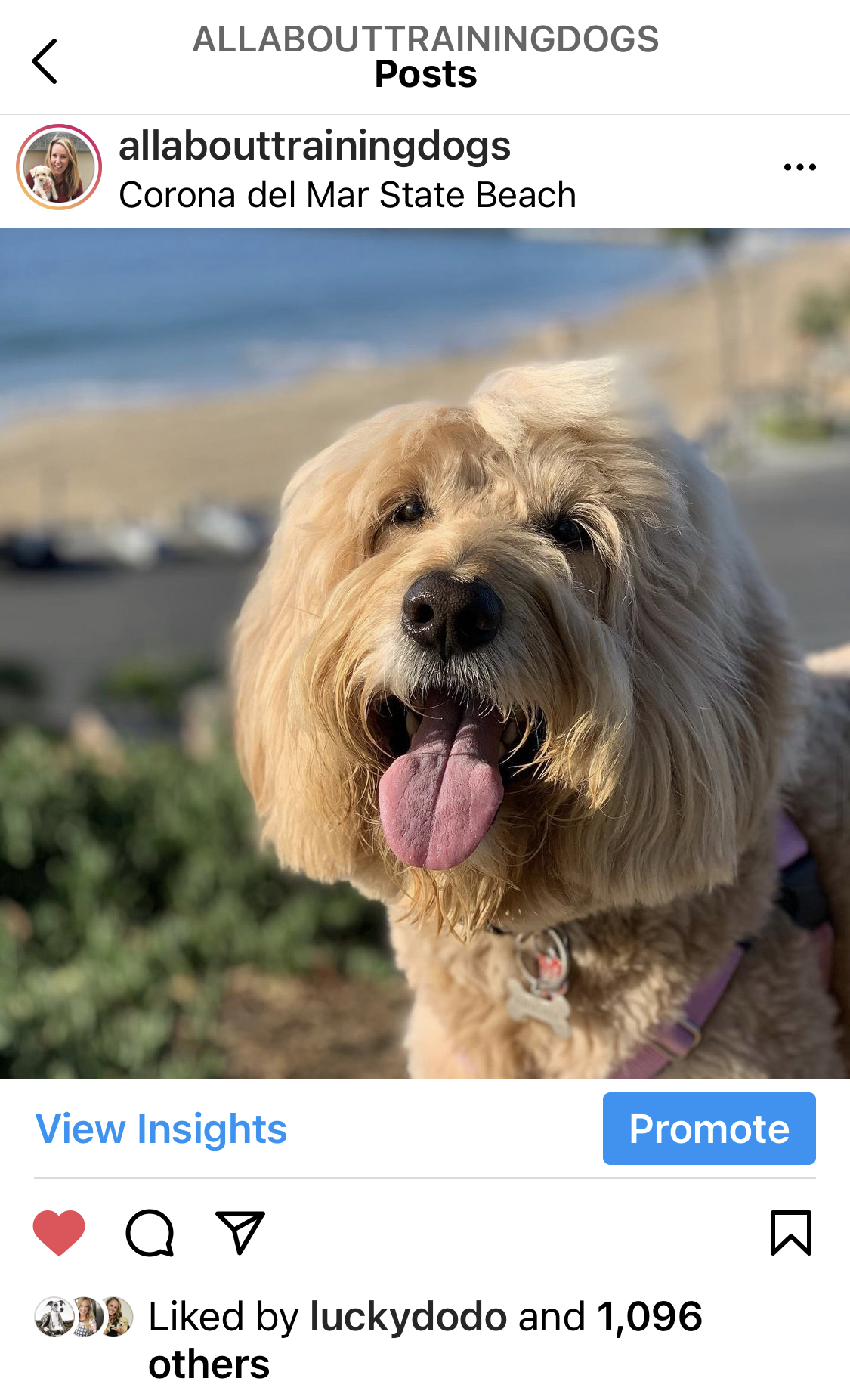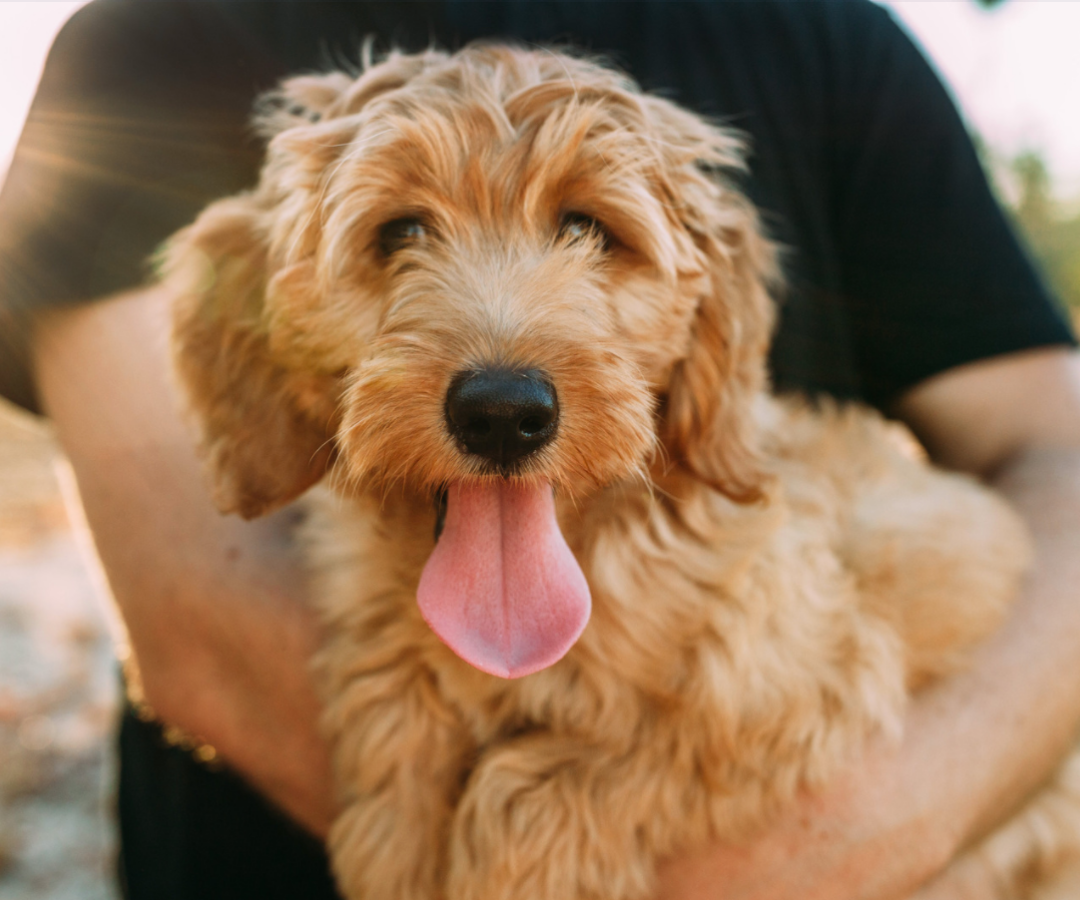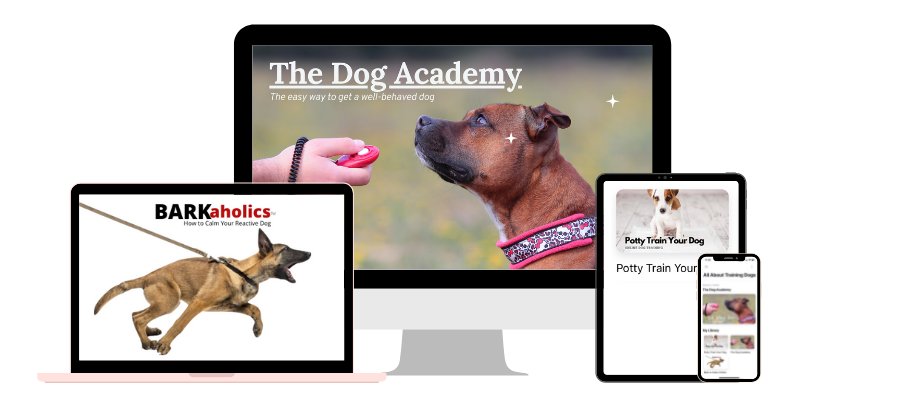[Episode 29]
What Age Do Puppies Grow Out of Problems?
Will my dog grow out of this problem?
This is a common question I get a lot from my private clients.
Or how long does it take for a dog to mature? Or how old will my dog be when he stops barking when he’s home alone.
One of the mistakes we make as dog owners is we think that problems will go away on their own. The basic premise of their questions is:
Will this problem go away on its own with time?
That’s basically what you’re wondering. And I get it, sometimes we see our friends who have older, lazy dogs, and we think when will my dog be like that? We think the problems will go away on their own when the dog is older, but that’s not how behavior works.
Behavior is a product of reinforcement.
What does that mean? A behavior is something that your dog is doing, such as biting, jumping, barking, chewing.
Reinforcement means to strengthen a behavior. That means it happens more often or again and again. When I say behavior is a product of reinforcement, what I’m saying or what you need to know is that practice makes perfect. The more your dog practices a behavior, the better he gets at that before. For example, the more often your dog practices biting your arm, the better he gets at it. The more your dog practices jumping on your guests, the better he gets at it. The more your dog practices chewing up your dining room table. The better he gets at it, the more your dog practices barking at other dogs, the better he gets at it.
It’s like learning to play the piano. The more you practice playing the piano, if you practice correctly, the better you get at playing the piano. This means that your puppy will not grow out of his problems.
In fact, it means that your problems (his problems) will get worse with time. Puppies and dogs do not mature out of their problems. They do not grow out of their problems and the problems will not go away with time, the opposite will occur. The more your dog practices a behavior, the better he gets. If that’s a behavior you don’t want like biting, jumping, chewing, pulling on the leash, or barking, he will get better at that behavior with time.
Most likely if your dog is doing something that you don’t like, that behavior is being reinforced. Sometimes you’re reinforcing those behaviors accidentally? You don’t know that you’re reinforcing them. And sometimes the environment is reinforcing them.
Let’s use puppy biting as an example. How is that behavior being reinforced? How could you be encouraging that behavior? So one of the mistakes that a lot of people make with puppy biting, and when we get a puppy is we use our hands to play with the puppy. We will push the puppy away with our hands. We’ll push the puppy’s mouth with our hands. We’ll use our hands as toys with the puppy. So what we’re doing right is the puppy thinks our hands are toys and the puppy doesn’t have hands. He plays with his mouth.
He’s not going to grow out of biting your hands. If you continue to use your hands as a toy, does that make sense? Your puppy will not grow out of puppy biting if you’re encouraging the puppy to bite by using your hands as a toy.
Another mistake people make is they think their puppy will ‘grow out’ of chewing or destructive chewing. Again, any behavior that’s reinforced is going to continue. Practice makes perfect. If your puppy is chewing up your dining room, table, leg, and he enjoys then that behavior will continue.
What do you do when your dog is doing something bad or naughty?
You want to think of what you want him to do instead and reinforce that. So one of the mistakes we make is we always give attention to the bad things and we ignore the good things. If your puppy is laying calmly on the floor and he’s not chewing a table leg, and he’s not being naughty, then give him attention.
A lot of times is our puppy will do something naughty and we give him attention. And then he learns this behavior gets attention just like a two-year-old. What you want to do is you want to focus on what do you want him to do? Instead, you want to set him up for success to do that. And then you want to give him attention when he’s doing something good. For example, if your puppy is lying calmly in his bed, then you could get up and go over there and give him a nice snuggle, a good, nice pet.
Behaviors can also be reinforced by the environment.
Your first step is to understand that your puppy problems won’t go away in time. Then ask yourself what do you want your puppy to do instead and reinforce that. Dog training is as easy as that. If you’re looking for more guidance and the step-by-step process to get your dog to listen then check out The Dog Academy.
Thank you for listening to today’s episode.
If you have any questions, please visit us on Instagram at @allabouttrainingdogs
Follow us on Instagram to see our daily training lessons.
You’ll learn a lot and get a dog that listens.


FREE MASTERCLASS
3 STEPS TO GET YOUR DOG TO LISTEN
Most struggling dog owners spend hours watching videos and reading blog posts that don’t address the cause of their problem. They waste time focusing on the symptoms and then think their dog is difficult or can’t change when they don’t see results. If you’re ready to finally see change, then sign up and watch this FREE Masterclass.

